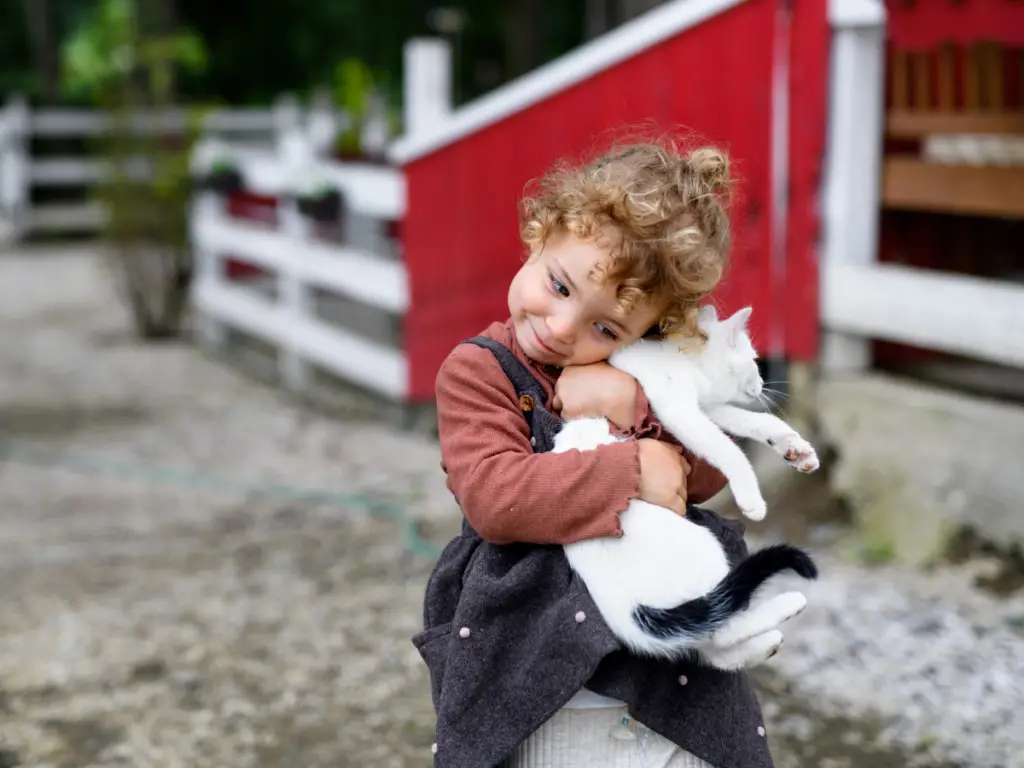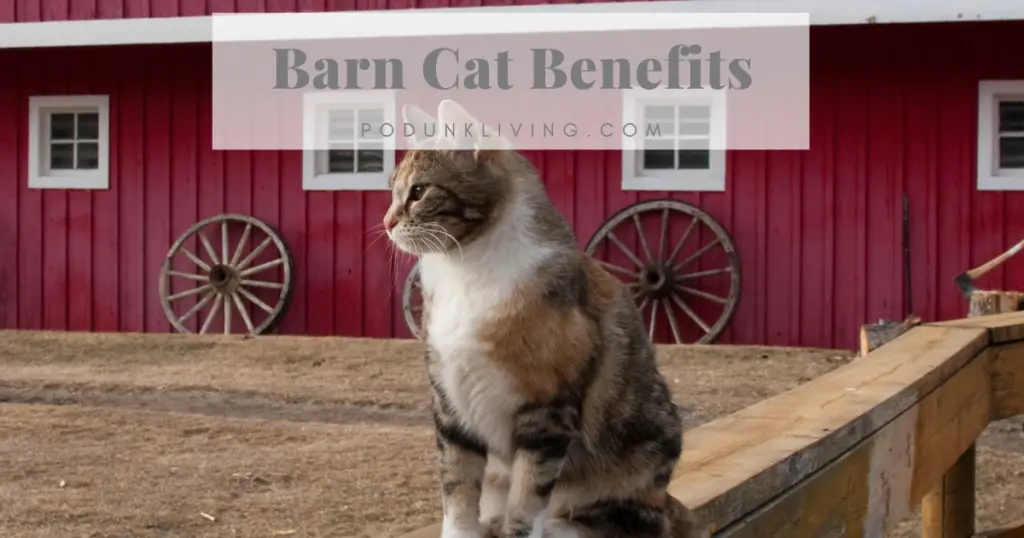Barn Cats Eat Mice, And Lots of Them
Barn cats are found in just about every rural community. Many farms find them as a nuisance, however, there are many benefits to encouraging outdoor cats to stick around the homestead. We have a bunch of barn cats running around our acrage, and I see them eating a mouse almost every day. In fact, my hardworking barn cats are such great mousers, that a friend wanted some barn kittens to combat the vole problem that killed their entire garden.
Barn Cats Minimize Animal Feed Loss
Homesteads or farms often have livestock such as chickens, sheep, cattle, or goats. Each one of these farm animals requires feed, and their feed often comes in large 50 pound sacks. Many farmers, hobby farms, and homesteaders have to store large amounts of animal feed, which is a magnet for rodents such as mice which will tear apart the feed sacks, defecate in the feed, and contaminate fresh water tanks. Barn cats are great at rodent control, minimizing feed loss. Our barn cats have hunted rabbits, snakes, birds, voles, and mice.
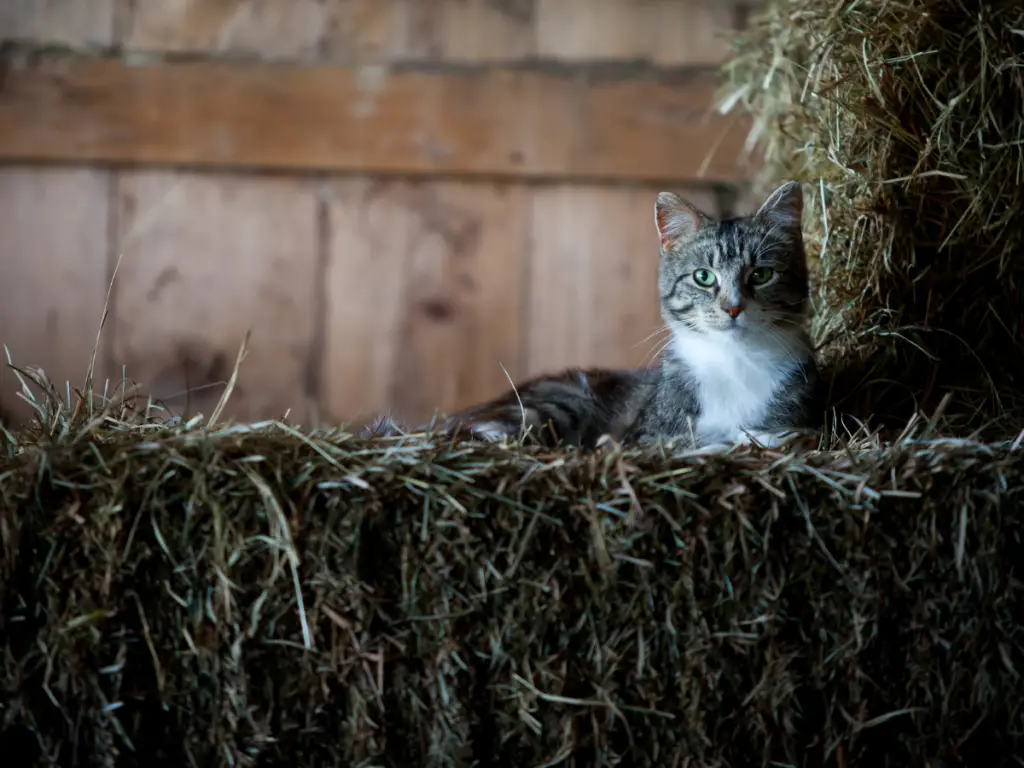
A Barn Cat is Easier to Care for than a House Cat
Working cats are low maintenance! They will take shelter in an old barn, or you could easily find a free old dog house off of Marketplace or Craigslist. Many will make themselves at home in a tack room, or any other comfortable place for them to sleep. Ours sleep in our insulated chicken coop. Barn cats, like any other livestock animal, will tolerate the cold weather just fine with proper shelter (Amazon affiliate link). They would however appreciate some extra blankets (Amazon affiliate link) in their shelter during extreme cold snaps (check your local thrift stores for cheap blankets). Ours survived the polar vortex of 2019, with ambient temperatures of -35 degrees Fahrenheit and windchill of -50 degrees. They rarely left the cozy place of the heated DIY chicken coop, but I did still see them out hunting from time to time.
Farm Cats are The Original Organic Rodenticide
Feeding barn cats fresh food daily will not stop them from hunting. Cats hunt for sport, similar to wolves or humans. They will eat their kill, but if you have a family of cats, hunters will often share their prey with kittens. Even an indoor house cat will bring their human owners their latest kill, as a present. Feeding semi-feral cats daily food will encourage them to stay in your area, without sacrificing their hunting instincts.
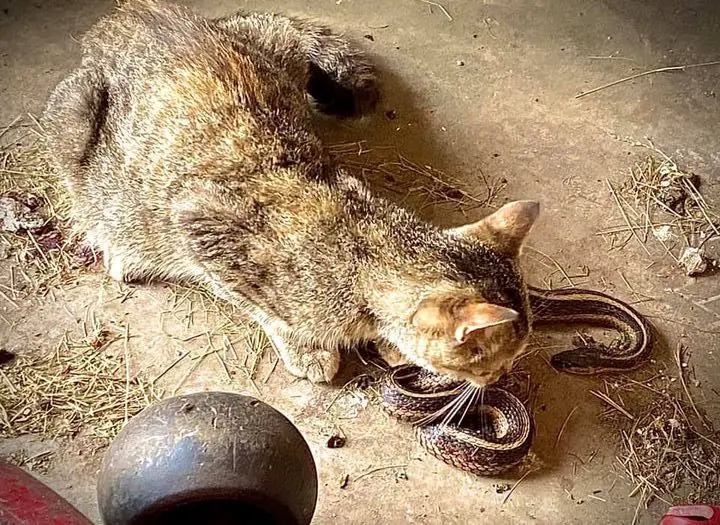
Local Farm Cat Program
Local shelters have started implementing barn cat programs, finding safe outdoor homes for thousands of independent cats. Veterinarians also have reduced costs for spay and neuter services for barn cats, which often include vaccinations. Barn cat programs have been the best solution to prevent unnecessary euthanization measures for overpopulated shelters. Obviously, a de-clawed social house cat would not make a great candidate for a barn cat. However, feral felines that find their way into towns are often semi-social, and make great companions for barn owners. The cat adoption fee for barn cats is often inexpensive, and usually covers initial medical care, neutering, and vaccinations.
New Barn Cat Care
Caring for new barn cats requires a bit of preparation, especially if you are bringing one home from an animal shelter’s barn cat program. We recommend securing the new cats in an enclosed area in their new surroundings for a couple of weeks. We modified a dog kennel to open up to the dog door in our chicken coop. Used dog kennels can be found relatively cheaply online, or these chicken coop kits (Amazon affiliate link) are cheaper than cat enclosures. This allows our new feline friends to go outside, and become familiar with their surroundings, but are also safe from predators. Just make sure they have access to food, water, and shelter, ensuring all their basic needs are met. This is also a good time to socialize the new adoptable cats to human contact. After a couple of weeks, you can open the enclosure, and they will start to venture out and reduce the rodent population in your area.
New Barn Kitten Care
Caring for abandoned or orphaned feral kittens is a bit more work. If they aren’t old enough to eat dry cat food, they must be bottle-fed with kitten formula (do NOT use pasteurized cow’s milk) multiple times per day. Then they can be weaned to wet kitten food, and eventually dry cat food. They will need protection from wild animals, wild cats, indoor cats, and neighborhood dogs. We have seen stray cats (usually a male cat) sneak in and kill newborn barn kittens, while their mom was out hunting.
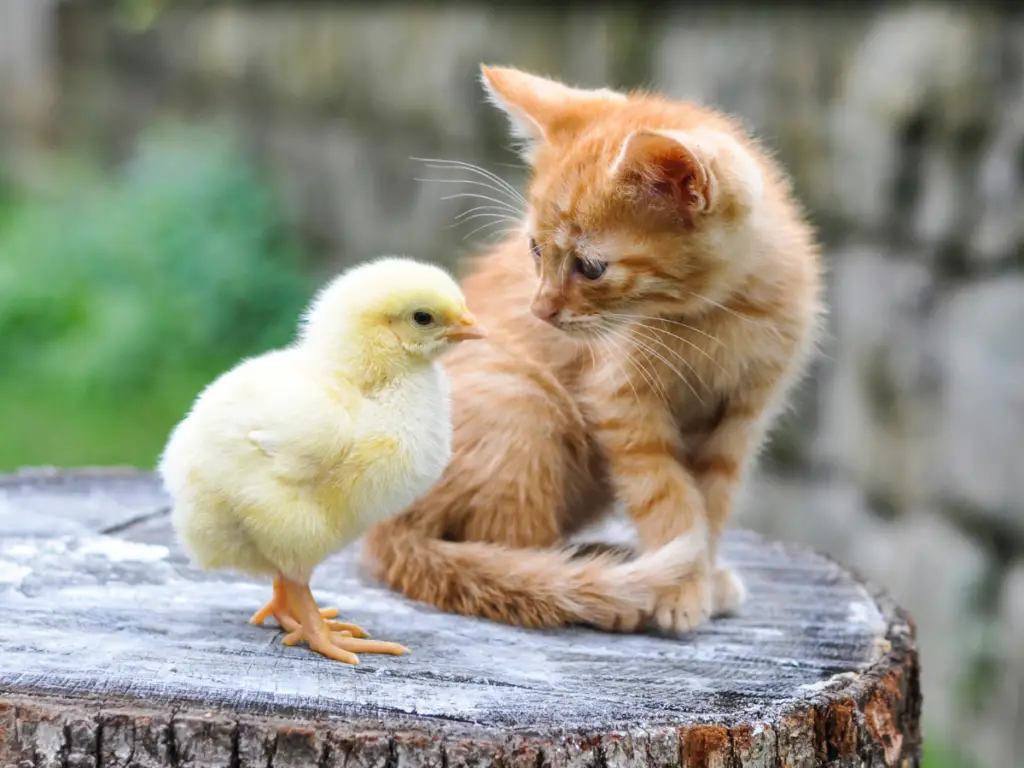
Save a Life: Adoptable Cats that Help at Home
Barn cat caregivers have saved the lives of thousands of feral cats. If you have a homestead of any kind, and would like to help the feral cat population, please consider offering a safe space for a semi-social cat to live the barn cat life (or even a pair of cats). They definitely earn their keep around barn homes across the United States. Just do an internet search for “barn cats near me” to get started.
